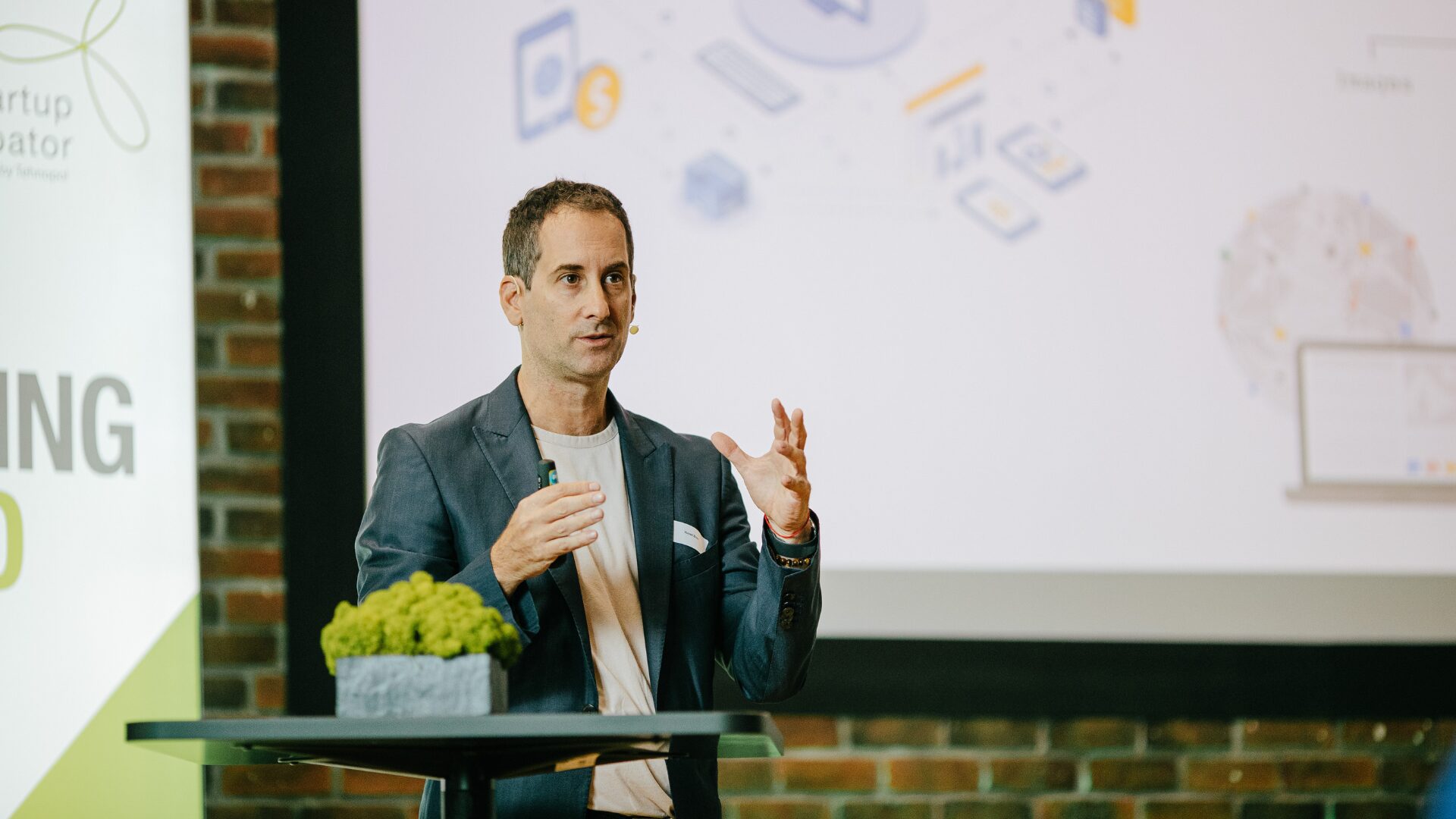16.10.2025
The intelligence revolution: Yuval Dvir on AI’s “brain”, agent risk, and Europe’s race to compete

Artificial intelligence (AI) is no longer just a technology upgrade but a structural shift that will redraw how businesses operate, compete and secure themselves, argued Yuval Dvir, the Chief Commercial Officer and AI advisor, formerly of Google, DeepMind, Skype and Microsoft, in a keynote at Tehnopol’s AI Ideation Day.
Drawing on more than a decade inside Big Tech and his current work with startups on agent security, Dvir said the centre of gravity has moved to the foundational models he calls the industry’s “brains”. Most companies now build around these models – supplying context, business logic and workflows – while the models provide reasoning and pattern recognition at superhuman scale.
The next phase, he said, is the rapid rise of AI agents: software that plans, executes and iterates like digital employees. That creates as much risk as opportunity. “Agents are coming, and our first job is to make them secure and observable,” Dvir warned, predicting a rush to introduce “trust layers” that track what agents do across infrastructure and applications. He expects at least one high-profile enterprise incident to catalyse investment in agent security over the coming year.
Dvir described a fast-advancing abstraction layer where AI orchestrates cloud and SaaS behind the scenes. Instead of hopping between dozens of applications, users may soon work through a single conversational window – whether Gemini, ChatGPT or another interface – that summons spreadsheets, drafts contracts and operates systems. That threatens familiar software categories and the consulting models wrapped around them. “As the layer moves up, many tasks we know today will feel like managing hardware racks – important, but invisible to the user,” he said.
Despite the hype, adoption inside large organisations remains uneven. Cultural barriers – hierarchy, incentives and discomfort with transparency – often outrun technical ones. Dvir urged leaders to back grassroots experiments rather than rely on top-down programmes: let motivated teams prove value, then scale. He also forecast a shift in roles as AI compresses functional silos. Generalists who can ask sharp questions, switch context and orchestrate across domains will be in demand, while the system handles depth on tap.
Not everything is utopian. Compute and energy are becoming the true constraints, with data centres turning into strategic assets and even geopolitical targets. Content quality and hallucinations remain concerns, but Dvir sees abuse and manipulation – by bad actors or perverse incentives – as the bigger risk. “A well-built AI doesn’t have ego or office politics; people do. The danger is less average-case quality than the ways technology can be bent,” he noted.
Placing today’s moment in historical context, Dvir called this the intelligence revolution – distinct from the agricultural, industrial and information waves – because it targets intelligence itself. Brain-inspired systems are now helping probe the brain in return, with promise in mental-state-aware applications where performance is tied to emotion and cognition. He expects AI to reconnect disciplines we split apart for human convenience – biology, physics, chemistry and computing – and potentially seed new sciences. The point was illustrated with familiar milestones from DeepMind’s AlphaGo to phone-based diagnostics: pattern-finding at scale can surface moves and insights humans miss.
Addressing Europe’s competitiveness, Dvir contrasted Estonia’s digital statecraft and Israel’s start-up engine with the United States’ advantages in deep capital pools, market scale and tolerance for failure. Europe’s fragmentation – languages, regulation, culture – remains a drag. “If Europe continues to play it safe, it is choosing third place,” he said, urging greater risk appetite, faster capital formation and bold investment in foundational capabilities rather than only applications.
For all the uncertainty, Dvir’s thesis is clear: foundational models are the brains; agents will be the staff; the interface will compress to a single pane; and winners will be those who secure, orchestrate and adapt fastest. Europe, he said, still has time to choose bolder paths – if it wants to compete at the frontier.

















